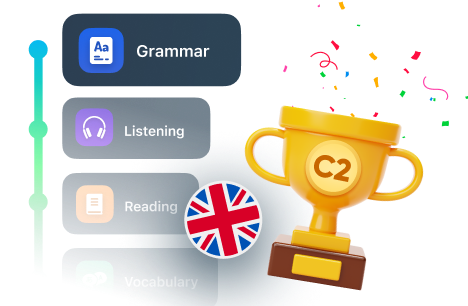
“Happiness” as an Important Topic For ESL Classes
I believe in a holistic approach when it comes to teaching my students, incorporating various aspects of ESL learning. In collaboration with my students, I enjoy exploring different topics. By doing so, we learn from each other and help each other with our different perspectives and experiences. Human beings are constantly seeking happiness. Happiness means something different to each person. There are, however, certain basic principles that have been put into words by numerous authors over the ages. There is no simple answer to being happy, I am merely putting forward some ideas that could be helpful in improving the quality of our lives.
“The happiness of your life depends on the quality of your thoughts” (Author unknown).
Building your life’s house, brick by brick
Every day matters. We should use every day as a brick or a foundation upon which we are building our lives. Our lives consist of a number of days put together, which basically forms our “memory banks” or points of reference. Concentrate on the present day at hand, do your utmost best with this day, and the future will look after itself.
As per the heading of this article, happiness, strangely enough, is often the result of hard work or overcoming obstacles that seem overwhelming. This statement almost seems to be a paradox. We often shy away from hard work and obstacles that could overwhelm us, and yet it is exactly what we need in order to keep “moving” and grow as a human being.
“Wisdom is to know that rest is rust and that real life is in love, laughter, and work” (Elbert Hubbard)
The fact that you are learning a new language tells me that you want to explore and that you want to reap the rewards of putting in some hard work. The rewards of learning a new language are immense in that it opens up a whole new world of possibilities, meeting new friends, understanding different cultures, being able to study the wisdom of others from different language groups, etc. You are heading into the future with conviction and enthusiasm, exploring new horizons. Always remember it is not where you start off but what really matters is where you end up and that a journey starts with the first step.
To help you learn a language, I leave some useful words and phrases to use in your conversations or writing.
Vocabulary Index
Food for thought (Idiom)
Something that warrants serious consideration.
His study certainly provides food for thought.
Happiness (Noun)
A state of well-being and contentment; joy; a pleasurable or satisfying experience
I wish you every happiness in life.
I had the happiness of seeing you.
Holistic (adjective)
Characterized by the belief that the parts of something are interconnected and can be explained only by reference to the whole.
The solution demands a holistic approach and a strategic vision of what can be achieved.
Collaboration (Noun)
The action of working with someone to produce something.
He wrote a book in collaboration with his son.
Exploring (Verb, gerund, or present participle)
Travel through (an unfamiliar area) in order to learn about it.
He explored the Fontainebleau forest.
Perspectives (Plural Noun)
A particular attitude towards or way of regarding something; a point of view.
Most guidebook history is written from the editor’s perspective.
Experiences (Plural Noun)
An event or occurrence which leaves an impression on someone.
Audition day is an enjoyable experience for any seven-year-old.
Principles (Plural Noun)
A fundamental truth or proposition that serves as the foundation for a system of belief or behaviour or for a chain of reasoning.
The basic principles of justice.
Ages (Plural Noun)
A distinct period of history.
Thru the ages, there was technological growth.
Ideas (Plural Noun)
A thought or suggestion as to a possible course of action.
The idea of linking pay to performance has caught on.
Quality (Noun)
The standard of something as measured against other things of a similar kind; the degree of excellence of something.
An improvement in product quality.
Thoughts (Plural Noun)
An idea or opinion produced by thinking, or occurring suddenly in the mind.
Maggie had a sudden thought.
Foundation (Noun)
An underlying basis or principle.
This idea is the foundation of all modern economics.
Memory (Noun)
Something remembered from the past.
One of my earliest memories is of sitting on his knee.
Concentrate (Verb)
Focus all one’s attention on a particular object or activity.
She couldn’t concentrate on the film.
Obstacles (Plural Noun)
A thing that blocks one’s way or prevents or hinders progress.
The major obstacle to achieving that goal is money.
Overwhelming (Adjective)
It’s hard to overcome overwhelming things. If you feel an overwhelming need to laugh, you’re probably going to laugh. If you have an overwhelming feeling of sadness, you’ll probably cry. An overwhelming amount of homework is almost impossible to get done. Adults who work, have families, and struggle to pay the bills feel like their lives are overwhelming. A tornado or hurricane is an overwhelming force of nature. When something is overwhelming, there’s not much you can do against it.
Paradox (Noun)
A statement or proposition that, despite sound (or apparently sound) reasoning from acceptable premises, leads to a conclusion that seems logically unacceptable or self-contradictory.
The liar paradox.
Conviction (Noun)
A firmly held belief or opinion.
She takes pride in stating her political convictions.
Enthusiasm (Noun)
A feeling of energetic interest in a particular subject or activity and an eagerness to be involved in it: One of the good things about teaching young children is their enthusiasm.


















